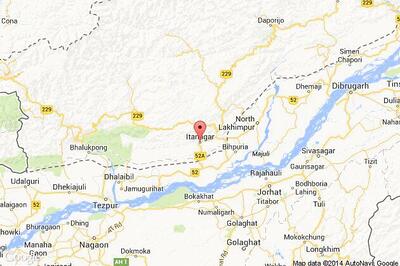
views
Nothing is ever certain in an ever changing world and most of all political power. If there was any doubt about that then 2011 dispelled it completely. In more ways and more cases than one it was truly the year of the fall of some of South India's most powerful regional chieftains. Starting with Karuna, to Yeddy and the Reddys in Karnataka to Jagan Mohan in Andhra Pradesh, they all fell and fell hard. In some cases the fall of those who seemed invincible started before the year began but the decisive blows came in 2011.
Towards the end of February 2011, when I landed at the Chennai airport on a personal trip, the discourse on corruption was omnipresent. Anna Hazare wasn't centre stage yet but it was election time in a state that's always swung a sweep. 2G had captured with repulsive anger the political mind space. But the question was will corruption matter to the electorate?
In the 2009 Lok Sabha elections 2G was an issue, but the DMK still won the polls and it's popularly agreed upon that the party spent tonnes of money and the voter sold his vote. So would the taint of corruption be wiped away with money spend in an election. There was an eerie feeling of overall pessimism and when you found some optimism it was at best cautious. Few dared to declare an overwhelming punishment from the electorate.
It took just a couple of hours after the votes began being counted for all that guarded analysis to be thrown into irrelevance. The people of the state had spoke and spoken decisively. They could not be bought, they will not be cowed down and they will bludgeon with their votes what they think is corrupt beyond tolerable limits. Jayalalithaa won but the real story was that Karunanidhi, his family and his party were routed beyond recognition. It happened to Jayalalithaa in 1996 and politics had completed one more Dravidian circle. 2G was an umbrella to an overall, repulsively brazen corruption by DMK functionaries at the grassroots.
The results were an important lesson. The political discourse in AP, Karnataka and Tamil Nadu had been dominated by the amount of money spent in elections. If the Bellary Reddys became the symbol of it in Karnataka it was the congress under the late YSR Reddy in Andhra Pradesh. The role of cash in buying votes and the impression was that money power has a decisive impact. Yes it may still have an impact but overwhelmingly people continue vote on the basis of their conscience and underestimating the electorate is at one's own peril. Tamil Nadu 2011 is a lesson that when things go beyond tolerable limits the electoral punishment will be severe. And it's that punishment that led to the once brute political ally of the congress be in a situation where it could not save the daughter in the party of the rising sun from six and a half months in Tihar.
If it was the electorate in Tamil Nadu it was the Lokayukta in Karnataka. Yeddyurappa seemed invincible till Justice Santosh Hegde came along. There was much speculation over whether it was possible to pull down the man who rode the BJP to power in the state and with the backing of the Brute Bellary Reddys controlled Bangalore. He was known for his abusive manner in dismissing the national leadership of India's principle opposition party. Efforts in the past to oust him had failed. But when his time came he had to fall. He may have scripted a drama, he may have appointed his successor but he still had to go to Jail and will perhaps spend the next five years fighting the charges against him.
Shift to Andhra Pradesh and when I met him towards the end of 2010, Jagan Mohan Reddy seemed invincible. There was a feeling that if he walks out of the congress he will most certainly pull the beleaguered government in the state down. When Kiran Kumar Reddy was chosen to replace Rosiah as chief minister many wondered how long he will last. Cornered by Telengana the congress is in dire straits and Jagan's Rayalseema power many thought would be the death blow. But through the twists and turns of 2011 the Jagan rebel power is now under great threat. He is facing the Centre's wrath and the CBI cases. All of 16 MLAs support him openly from a party which his father the late YSR held with an iron grip. This was perhaps the failure of Jagan's inability to realise the difference between being a regional chieftain and drawing room politics of the national capital.
Yeddy, Reddy, Raja, Karuna and Kani may all rise again, but the point they have all made with their fall is that a perception of political arrogance is more dangerous than a perception of corruption. The more brazen you are the harder you will fall. It's an important lesson for the regional chieftains who thought the numbers they have makes their political power certain and hence breeds arrogance. At the end of the day the numbers change and so do political fortunes. The ones who fell in 2011 must be credited with changing the political landscape of their states when they rose but with their fall they have only made their states weaker in the national sphere.
I hope the one's who rose from the fall of others in the southern system learn their lessons and realise that South India's preeminence in the economic sphere is as uncertain as political careers. In the midst of the pitch personal political battles little have the four southern states focussed on larger people's issues. I hope, but with an overdose of cynicism, that we begin scripting a different story with the New Year and 2012 will be the year of the rise of South India again.
####

















Comments
0 comment